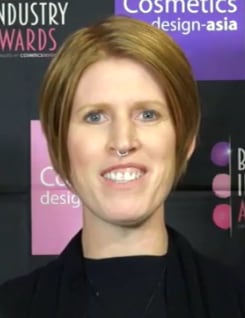CES 2018, the consumer electronics show which bills itself as The Global Stage for Innovation, opens today (Tuesday, January 9) and runs through Friday in Las Vegas, Nevada.
The annual event has come under scrutiny for not booking any women as keynote speakers. This year’s 6 keynote presentations, where speakers address the entire conference of 180,000+ attendees, are all men (5 of whom are white). This, despite the organizers’ purported last-minute efforts to diversify the top of the bill.
Instead the “CTA [Consumer Technology Association] has tweaked its web page on keynote speakers—the one which prompted the initial flurry—to make it look more diverse,” Sean Captain of fastcompany.com reports. “The men dominating top spots, such as Intel CEO Brian Krzanich, are now mixed in with women at smaller events, like PepsiCo SVP Kristin Patrick.”
Beauty tech laggards
It’s also striking that in an event run and attended by tech pioneers and early adopters of every sort, the CES only added a dedicated Beauty Tech Summit in 2017. The year before, beauty was lumped in with Baby Tech; and before that tech for the personal care and cosmetics industry was uncategorized at the show.
What’s possible with tech
Beauty tech, as any regular reader of Cosmetics Design already knows, is advancing swiftly nonetheless. Spotify and Amazon Alexa have recently become retail platforms for cosmetics and skin care, scholarly research (on topics like molecular skin mapping) is increasingly high tech, and marketing initiatives from industry suppliers, like Alban Muller, employ all the latest social and digital trends.
Still, Cambridge Consultants found what they believe to be an unmet need in beauty tech and improved upon their Skintuition platform. “For this application specifically, we saw a gap in how personal diagnostics was being used to advise consumer choice and decided this would be an appropriate area to demonstrate our capabilities and excite the market,” writes Edward Brunner, head of Asia consumer business at Cambridge Consultants, in an email exchange with Cosmetics Design.
The resulting tech tool is meant to showcase the company’s expertise and is brand agnostic: “Unlike the majority of our work (where a client sets us a challenge or vision for a product which we then engineer to reality) Cambridge Consultants has developed this technology to demonstrate our capabilities and challenge consumer goods companies to consider how technology can be used to differentiate their brands,” explains Brunner.
Update available
The previous version of Skintuition was essentially a color-matching tool that recommended complexion products specific to the skin tone and lighting preferences of consumers.
Now, according to a media release from Cambridge Consultants, “this multi-spectral imaging technology can revolutionise the consumer experience across cosmetics, personal care and consumer healthcare, with the ability to measure and advise on conditions such as skin dryness or acne, and the effects of ageing. In addition to conducting a one-off analysis of the consumer’s skin condition, to aid with purchasing decisions in store or which products to apply at home, the technology enables consumers to monitor changes over time, including the impact that their products are having on their skin.”
Internet of things
The version of Skintuition on exhibit at CES 2018 is one consumers can use at home. “The technology can be embodied as a low cost smartphone accessory for use at home – a simple clip on device for consumers’ smartphones – or as a countertop tablet for in-store use,” as the media release describes it.
So brands could provide in-home skin assessments, product use guidance, and automated purchasing through this one tool.
“Giving this to consumers at home, allows them the select the right version of the product at the point of application. It allows consumers to track how the product is performing and how the look or condition is improving over time. It would be possible to intelligently track product use, giving consumers the opportunity to make repeat purchases directly from the brand (via the app) therefore never running out of the product,” Brunner tells Cosmetics Design. “All these things directly help brand loyalty, directly benefitting the brand owner.”
And he believes that “having such a system both in store and at home allows the brand to create an excellent consumer journey throughout the lifetime of the product.”
Looking ahead
The technology behind Skintuition is quite flexible, according to Brunner and could readily be leveraged to benefit other industries.
In the cosmetics and personal care space the next generation of Skintuition will be predicated on additional data inputs. “It could further evolve through the fusion of data from other sources, such as wearables,” Brunner tells Cosmetics Design, “to provide an even deeper understand of the individual consumer refining the recommendations and widening the type of measurements that can be made.”
---

Deanna Utroske, CosmeticsDesign.com Editor, covers beauty business news in the Americas region and publishes the weekly Indie Beauty Profile column, showcasing the inspiring work of entrepreneurs and innovative brands.
